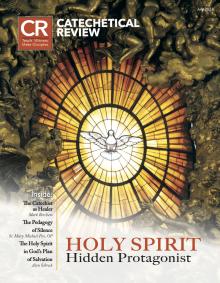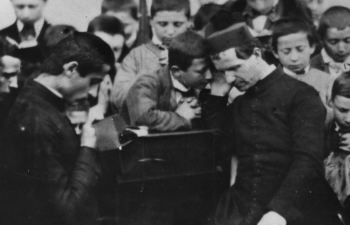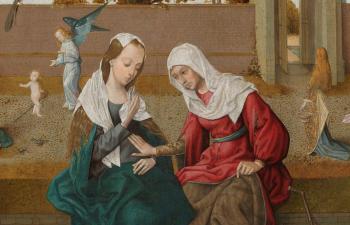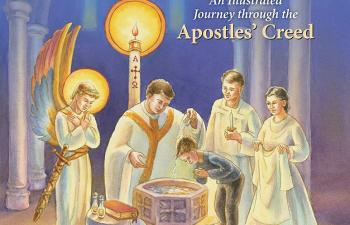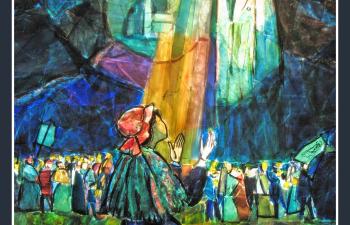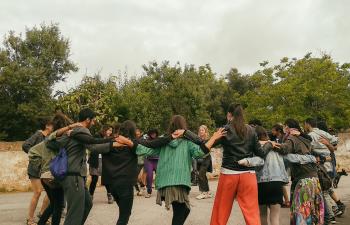In Jesus’ Good Shepherd discourse, he describes his and his Father’s shared omnipotence as shepherd over his flock, saying that no one can claim the sheep either in his hand or in the Father’s hand, adding that he and the Father “are one” (Jn 10:30). Many of those around him prepare to stone him to death on the spot because they perceive this claim to be blasphemous. He does not, however, respond to the raging crowd in the manner we might expect theologically.
After briefly pointing to the authority of the works he does as bearing witness to his divine origin from the Father, Jesus directs the crowd to the absolute authority of the Psalms, which makes the same claim, “you are gods” (Jn 10:34, cf. Ps 82:6). He interrupts himself to add a crucial point: “Scripture cannot be nullified.” Jesus here illustrates an important biblical principle: one cannot simply ignore a difficult passage, even one that seems to be calling human beings “gods.” What results is a beautiful a fortiori argument: If Scripture calls them “gods,” how much more ought no one to object that Jesus, the Son of God, claims oneness with the Father. The crowd has no word to respond to this claim.[1]
How do we understand this claim, “you are gods”? Put simply, the Holy Spirit makes gods of the worshipping faithful. This is what St. Peter illustrates in one of his epistles when he writes that we are made to be “partakers of the divine nature” (2 Pet 1:4). We know from the rest of the Gospel of John and the consequent Tradition that implied in the Son’s claim about his union with the Father is the reality that the Holy Spirit effects a similar union between believers and God. So, when we are deified, or made divine, does that mean that we cease to be human? To borrow a phrase from St. Paul, by no means! That is the good news about deification—we remain fully human when we are made divine.
So how then are we made divine without the annihilation of our humanity? To answer that question, we need to turn to the Fathers of the Church, who give us some important foundational principles. They especially help to illumine the divinization of humanity. St. Irenaeus of Lyons, whom Pope Francis named a Doctor of the Church, puts it this way: “the only true and steadfast Teacher, the Word of God, our Lord Jesus Christ, . . . did, through His transcendent love, become what we are, that He might bring us to be even what He is Himself.”[2] Athanasius formulated the same principle when he said, “He was incarnate that we might be made God.”[3] This divinization, or theosis, does not obliterate human nature. Instead, human nature is elevated and filled with divine life.[4] Taking the lead from the Fathers, our understanding of this doctrine of deification is fundamentally Christ-centered. The extent to which God became man is the extent to which man becomes God. Though our “person” never becomes God, the good news is that we are radically elevated into supernatural life through the gift of the Spirit.
The conciliar tradition helps us to see the importance of humanity’s unchanging nature, especially in light of the definition of the hypostatic union at the Council of Chalcedon of 451. In this definition, we confess that the divine and human natures of Christ are united in the Son’s one hypostasis (that is, person) “without confusion, without change, without division, without separation.” This understanding of the union between the divine and human natures in Christ is crucial for our understanding how our humanity could be filled with divine life without undergoing an essential change. For example, in the Eucharist, the bread and wine are changed substantially into the body, blood, soul, and divinity of Christ. We call this change transubstantiation because only the accidental qualities of bread and wine remain, while the essence itself is changed. We are not “transubstantiated,” so to speak, in theosis.
The rest of this online article is available for current Guild members.
This article is from The Catechetical Review (Online Edition ISSN 2379-6324) and may be copied for catechetical purposes only. It may not be reprinted in another published work without the permission of The Catechetical Review by contacting [email protected]


